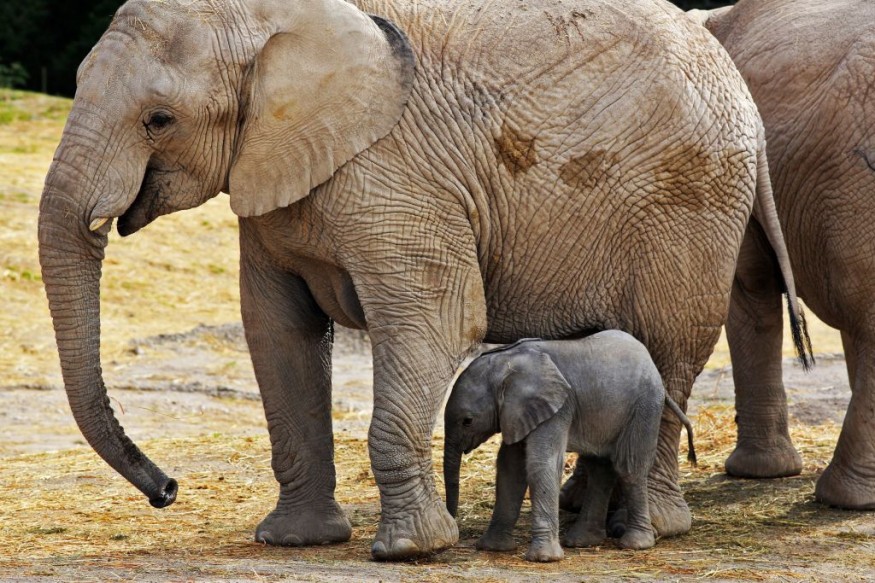Namibia intends to sell off 170 of its elephants in order to control herds that were progressively colliding with humanity in December 2020 and has claims to over 24,000 elephants.
Pursuant to a declaration issued by Namibia's Ministry of Environment, Forestry, and Tourism; the government is in the throes of recovering 57 native elephants that were auctioned off last year.
Wild Elephants Auctioned in Namibia

According to Romeo Muyunda, a spokeswoman for the Department of Nature, Forests, and Tourist, the authorities have already seized elephant colonies wherein many of them are pregnant, as mentioned in a report in National Geographic.
Wiles CITES, the intergovernmental organization pact that governs the transfer of wild African elephants, was modified in 2019 to prohibit elephants from Botswana, Zimbabwe, Namibia, and Africa from getting shipped overseas to every part of the world where the creatures do not or have not previously resided in the outdoors, except if there is a substantiated preservation gain.
Senior counsel of the UK-based Born Free Foundation, which condemns transferring endangered creatures from the wilderness, Mark Jones expressed his thoughts and says that Namibia's officials must adhere to worldwide elephant professionals and reject these tragic shipments while it's not too far.
Grobler was arrested for breaching the property, prompting the government to make today's announcement to explain the present position of the bidding, according to Muyunda.
According to a report in VOA, trading wildlife into confinement had already had been fraught with the dispute, partly as there is disagreement concerning as to if such extremely maneuverable, majestic creatures can survive prosperous life in confinement.
Furthermore, splitting up populations harms connections between many tight relatives. Experts affirmed that two calves were conceived after the elephants were captured from the outdoors and that they are performing well. It also announced that 57 elephants that it is yet to capture from the jungle were already sold to 3 potential buyers.
As per Muyunda Namibia's administration informed that they can't offer information at this moment until the whole phase is finished.
"Elephants have fundamental demands for interesting natural and environmental contexts, as well as the flexibility to choose their hunting alternatives and partners."
Read also: DNA in Elephant Tusks Reveal Illegal Ivory Trafficking Networks: More than 4000 Tusks Tested
Namibia Government Seized Elephant Colonies
While into today's announcement, 37 elephants are already caught, including 22 for shipment. Grobler claims to have been situated on a shared path when he launched an aircraft above the property to observe the elephants. It's debatable if Namibia can actually transfer wild elephants to an international wildlife park or even other customers beyond southern Africa.
The Fish and Wildlife Administration refused to speak if certain facilities in the United States had applied for licenses to acquire elephants from Namibia.
The chief executive officer of the Association of Zoos and Aquariums (AZA) in the United States, Dan Ashe, stated in a letter on February 14 that the organization is ignorant of such engagement by its affiliates in the Namibian elephant sale.
"Such requirements cannot be addressed in captivity," explains Michele Pickover, executive director of the South African-based EMS Institute, a non-profit that campaigns for disadvantaged citizens and wildlife conservation.
Calves may be seen in aerial shots of a property where 22 captive elephants are being housed for transport. Ashe in a quick interview says that they acknowledge the worries about the paucity of openness around this effort.
According to him, he is concerned that several elephants may be expecting, that the tension of confinement may lead to early deliveries, and that Affiliates are by no responsibility to notify AZA concerning prospective wildlife shipments.
Following the publication of this story on February 15, the service's FOIA department contacted National Geographic and stated that it had no evidence of submissions, ruling out U.S. institutions as a potential route for these elephants.
© 2025 NatureWorldNews.com All rights reserved. Do not reproduce without permission.





